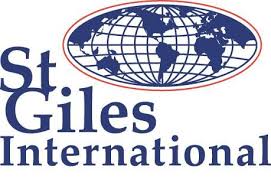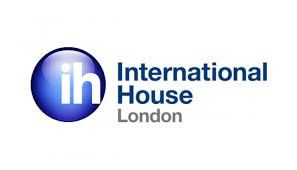
Optimizing Secretarial and Electronic Work Management with Best Practices Outlines
Course ID: 2512295701448EGI
Course Dates : 29/12/25 Course Duration : 5 Studying Day/s Course Location: Bahrain, Bahrain
Language: Bilingual
Course Category: Professional and CPD Training Programs
Course Subcategories: Leadership and Management Excellence
Course Information
Introduction
In an era where efficiency and adaptability define professional success, the role of secretarial and administrative professionals has evolved significantly. These individuals are no longer confined to traditional clerical tasks but are now integral to organizational productivity, communication, and strategic planning. With advancements in technology and the increasing complexity of workplace dynamics, mastering the art of optimizing secretarial and electronic work management is essential for both personal and organizational growth. This course addresses the growing demand for professionals who can seamlessly integrate modern tools, frameworks, and best practices into their daily workflows.
The challenges faced by administrative professionals today are multifaceted. From managing overwhelming volumes of digital correspondence to ensuring compliance with data privacy regulations, the demands on their time and expertise are immense. A recent study by McKinsey & Company highlights that nearly 60% of administrative tasks could be automated or streamlined, yet many organizations fail to capitalize on these opportunities due to a lack of structured training. This gap in knowledge not only affects individual performance but also limits organizational efficiency. By addressing these gaps, this course empowers participants to transform potential inefficiencies into opportunities for innovation and excellence.
Consider the case of a multinational corporation that implemented advanced electronic document management systems (EDMS) without providing adequate training to its administrative staff. The result was a decline in productivity as employees struggled to adapt to the new system. However, when a tailored training program was introduced, productivity increased by 35%, and employee satisfaction improved significantly. Such real-world examples underscore the importance of equipping professionals with the skills needed to navigate technological advancements effectively. This course draws on similar insights to ensure participants are prepared for the challenges of modern workplaces.
The theoretical foundation of this program is rooted in established frameworks such as Lean Management, Time-Blocking Productivity Techniques, and the Eisenhower Decision Matrix. These methodologies provide a robust structure for understanding how to prioritize tasks, delegate responsibilities, and optimize workflows. Additionally, the course incorporates insights from industry trends, such as the rise of remote work and the increasing reliance on cloud-based collaboration tools like Microsoft Teams and Slack. Participants will learn how to leverage these tools while maintaining professionalism and safeguarding organizational data.
For individuals, mastering the principles taught in this course translates into enhanced career prospects, greater job satisfaction, and a reputation for reliability and competence. Organizations, on the other hand, benefit from streamlined operations, reduced overhead costs, and improved compliance with regulatory standards. For instance, a mid-sized law firm that trained its administrative staff in electronic file management reported a 40% reduction in document retrieval times and a significant decrease in errors related to misplaced files. These outcomes demonstrate the tangible impact of investing in professional development.
Ultimately, this course is designed to bridge the gap between traditional administrative roles and the demands of a digitally-driven workplace. By combining practical skills with theoretical knowledge, participants will emerge equipped to lead transformative changes within their organizations. Whether you are an experienced professional seeking to refine your skills or a newcomer eager to establish a strong foundation, this course offers the tools and insights necessary to excel in the modern workplace.
Objectives
By attending this course, participants will be able to:
Analyze current workflow inefficiencies and propose actionable solutions using Lean Management principles.
Evaluate the suitability of various electronic tools for specific organizational needs and implement them effectively.
Design personalized productivity plans incorporating techniques such as Time-Blocking and the Eisenhower Matrix.
Apply best practices for managing electronic documents, ensuring compliance with data protection regulations.
Implement strategies for seamless remote collaboration using platforms like Microsoft Teams and Google Workspace.
Assess the impact of automation on administrative tasks and identify opportunities for process optimization.
Develop communication protocols that enhance team coordination and minimize misunderstandings in virtual environments.
Who Should Attend?
This course is ideal for:
Administrative assistants, executive secretaries, and office managers seeking to enhance their technical and organizational skills.
HR professionals tasked with streamlining internal processes and improving workplace efficiency.
Team leaders and project managers looking to optimize team workflows and resource allocation.
Consultants and trainers specializing in organizational development and productivity enhancement.
These groups will find the course valuable as it addresses their need for practical tools and strategies to manage increasingly complex work environments. While the content is suitable for beginners, intermediate learners will particularly benefit from the advanced applications and case studies included. Advanced practitioners may also gain insights into emerging trends and technologies relevant to their roles.
Training Method
• Pre-assessment
• Live group instruction
• Use of real-world examples, case studies and exercises
• Interactive participation and discussion
• Power point presentation, LCD and flip chart
• Group activities and tests
• Each participant receives a 7” Tablet containing a copy of the presentation, slides and handouts
• Post-assessment
Program Support
This program is supported by:
* Interactive discussions
* Role-play
* Case studies and highlight the techniques available to the participants.
Daily Agenda
The course agenda will be as follows:
• Technical Session 08.30-10.00 am
• Coffee Break 10.00-10.15 am
• Technical Session 10.15-12.15 noon
• Coffee Break 12.15-12.45 pm
• Technical Session 12.45-02.30 pm
• Course Ends 02.30 pm
Course Outlines
Foundations of Secretarial and Electronic Work Management
Understanding the evolving role of administrative professionals in modern organizations.
Introduction to Lean Management principles for workflow optimization.
Overview of essential electronic tools and software for administrative tasks.
Importance of data privacy and compliance in electronic work management.
Day 2:
Productivity Techniques and Workflow Optimization
Applying Time-Blocking and prioritization frameworks to daily tasks.
Using the Eisenhower Decision Matrix to categorize urgent and important activities.
Identifying bottlenecks in current workflows and proposing solutions.
Practical exercises: Developing a personalized productivity plan.
Day 3:
Mastering Electronic Document Management Systems (EDMS)
Fundamentals of EDMS and their role in organizational efficiency.
Best practices for organizing, storing, and retrieving electronic documents.
Ensuring compliance with GDPR and other data protection regulations.
Case study analysis: Successful implementation of EDMS in a corporate setting.
Day 4:
Remote Collaboration and Virtual Communication
Strategies for effective communication in virtual teams.
Leveraging platforms like Microsoft Teams, Slack, and Google Workspace.
Managing digital meetings and ensuring participant engagement.
Developing protocols to minimize misunderstandings in remote settings.
Day 5:
Automation and Future Trends in Administrative Work
Exploring the impact of automation on administrative tasks.
Identifying opportunities for process automation within organizations.
Emerging trends in secretarial and electronic work management.
Final project: Presenting a comprehensive optimization plan for a hypothetical organization.
Course Fees: £2,958.13
Vat Not Included in the price.
VAT may vary depending on the country where the course or workshop is held.
Click to pay
Contact us for more information Sales@e-s-hub.com



















































